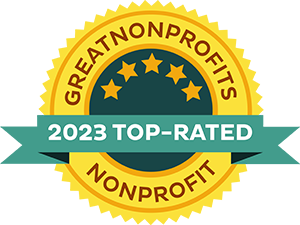By Keith Brown and Lorenzo Jones
Over the last few weeks in New Haven, Connecticut, nearly 100 people have experienced an overdose and other bad symptoms from K2 or “spice.” As authorities and local leaders take action to address the crisis, it’s time to look at the actual factors driving this problem, and demand sensible solutions that protect public health and save lives.
Synthetic substances like K2 are often created by amateur chemists using chemicals and compounds that are readily found in local or online stores. The cocktail of largely unregulated compounds are marketed to mimic the “high” of other drugs that are prohibited. K2 is marketed as a “legal” version of cannabis, and is often called “synthetic marijuana.” While these synthetics claim to give the user the same high as other drugs, they often have a much larger potential for harm than the drug they purport to mimic, and in most cases, they have vastly different effects on the brain and body. While there are no known overdoses of cannabis, as we can see in New Haven, these unregulated synthetic compounds masquerading as “synthetic marijuana” can cause tremendous harm.
While cannabis is still illegal in Connecticut, products like “synthetic marijuana” are unregulated, which means they can be sold locally in stores or via the internet. While nine states – including Massachusetts — have legalized and regulated cannabis for recreational use by adults, Connecticut still maintains a failed system of cannabis prohibition. Adults looking to use cannabis cannot purchase it from a local store, but they can legally purchase something potentially more dangerous – K2.
In many cases, these synthetics are specifically designed to skirt typical means of detection. For people who are routinely drug tested to determine if they have used cannabis, this may incentivize the use of synthetic marijuana. People using social services like homeless shelters, transitional housing and those receiving social welfare supports are often subject to drug testing, as are people engaging in substance abuse disorder treatment, including methadone maintenance. For these folks, a positive test for cannabis can result in being discharged from the very services they need. For people ensnared in our justice system who are regularly tested for cannabis use, a positive test can mean a return to jail or prison. The very fact that cannabis is criminalized spurs people to find products similar to cannabis that are not.
What is occurring now in New Haven is complex and will not be resolved with simple answers. In this crisis moment, we must respond in ways that meet people where they are and address both the underlying issues that contribute to people using these substances, and also the broader social and legal context within which the use is taking place.
Immediate steps should include investing in proven harm reduction services (e.g., syringe exchange and overdose prevention tools and trainings), low-threshold access to treatment, drug testing kits, and safer consumption spaces. All of these bring people who are using drugs into services that immediately offer health and safety resources while also facilitating meaningful access to care and treatment and reducing disease, disorder, and accidental death. Similarly, we must make further investments in harm reduction-based pre-arrest diversion programs, like Law Enforcement Assisted Diversion (LEAD). These programs divert people for low-level offenses related to substance use, mental health, and poverty away from the criminal justice system and into person-centered case management.
In the broader context, Connecticut should finally legalize and regulate cannabis for recreational use by adults. We must follow the recommendations of the leading medical journal in the world, The Lancet: fully decriminalizing the possession and use of all drugs, and ending the stigma and marginalization of people who use drugs. Portugal did exactly this in 2001 and has seen reductions in both drug-related deaths and other negative outcomes since.
Viewing recent events in New Haven through the lens of prohibition makes it crystal clear that our decades–long War on Drugs approaches have failed to address drug-related harm, and have in fact created more harm for people and communities. If we continue down this drug war path, we should not expect different results, however, Connecticut can be smarter than that. We can advance sensible public health policies and interventions that will yield the results we all want: improved public safety, reduced harm, and healthy communities.

Lorenzo Jones and Keith Brown are, respectively, the Co-Executive Director and the Director of Health and Harm Reduction at the Katal Center for Health, Equity, and Justice, based in Hartford, Connecticut

